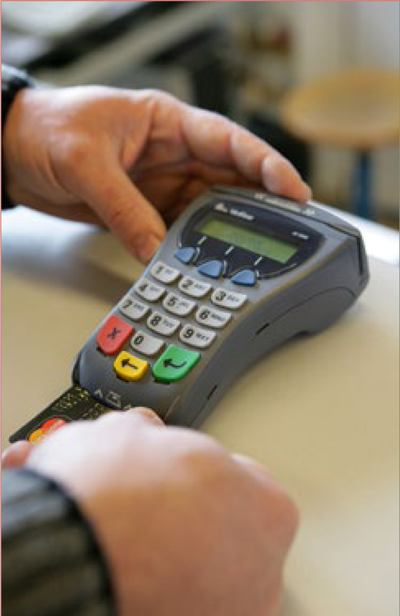Zappers

TAXATION
New federal legislation is now in place to punish users of electronic sales suppression software.
The federal government is getting tough with businesses that use electronic sales suppression (ESS) software (commonly called “zappers”) to delete or modify point-of-sale (POS) transactions for the purpose of evading taxes. E?ective January 1, 2014, zapper users will, of course, not only have to pay the unremitted taxes plus interest but will also face substantial ?nes and even imprisonment if they manufacture, sell or possess these devices. These sanctions have been introduced through amendments to the Excise Tax Act and the Income Tax Act.
The Old Days
The old cash register system was fairly simple: it recorded sales in ?ve or six basic categories as well as any applicable taxes and produced a summary for bookkeeping purposes. At the end of the day, the cash in the till was expected to equal the total dollar amount of the sales. If sales were not recorded, it was easy to pocket the funds and no one would be the wiser. This has always been a concern of retailers since they could never be certain that employees had entered all sales.
Then Along Came POS
The advent of computerized POS systems with bar code scanners and radio-frequency identi?cation (RFID) tags was a blessing for most retailers because the system permitted
- accurate recording of overall sales as well as the ability to categorize the type of sale
- automatic breakdown of the required HST/GST and PST
- the use of sales data to re-order items as required
(i.e., inventory management) - better security since all individuals using the cash register were required to log on when entering the system
- the reduction of labour-intensive data entry by linking sales transactions directly to the accounting software
- the reduction of cash or inventory theft by employees
The Zapper Facilitates Tax Evasion
The introduction of POS systems made it di?cult to skim money from the till because all transactions were recorded within the system. The zapper was developed to falsify the electronic records of a POS system in order to evade paying not only income tax but the various sales taxes. The zapper software program is temporarily introduced into the POS system from a USB ?ash drive to modify records so that fewer transactions are recorded than have actually been processed. The use of the USB ?ash drive means the program can be removed from the computer without leaving any trace for the auditor to ?nd.
Tax evasion by using zappers is a worldwide problem.
An International Problem
So extensive is the use of zappers that the Organization for Economic Cooperation and Development (OECD), of which Canada is a member, has been working with member nations to determine the potential loss to economies and develop procedures to reduce the loss to government co?ers. The OECD produced a report entitled Electronic Sales Suppression: A Threat to Tax Revenues in 2013. (http://www.oecd.org/general/searchresults/?q=electronic%20sales%20 suppression) The Canada Revenue Agency has more than 5,000 employees dedicated to ?nding unreported income and ensuring the appropriate taxes have been remitted.
Voluntary Disclosure
For those taxpayers that may have interfered with their POS, CRA advises that they may wish to consider coming forward with full disclosure now, before any investigation of their business is started. It would be advisable to seek the advice of a tax advisor familiar with the workings of the voluntary disclosure process to ensure that the requirements are met. Expert assistance could reduce or eliminate the penalties or prosecution.
Penalties
The new legislation has created both administrative and criminal penalties. Anyone found in possession of, or using, a zapper will be ?ned $5,000 for the ?rst infraction; subsequent infractions will bring a $50,000 ?ne. Any person or company that manufactures, develops or makes a zapper available for use will be ?ned $10,000 for the ?rst infraction and $100,000 for any subsequent infraction. A summary criminal conviction could bring a ?ne of not less than $10,000 and not more than $500,000 and/or not more than two years in prison. Conviction by indictment could bring a ?ne of not less than $50,000 and not more than $1 million and/or imprisonment for not more than ?ve years.
In rare circumstances the vendor may be unaware a zapper is being used on the company’s POS system. Penalties will be avoided if the vendor establishes that reasonable prudence was exercised to prevent the use of the zapper (e.g., by having the system examined by an expert).
Zappers Do Not Pay Off
As of January 1, 2014, businesses are on notice that CRA will not tolerate electronic manipulation of POS systems to evade the payment of HST/GST and PST, corporate or personal income taxes. The cost of paying past taxes, penalties, ?nes and the time and money spent to defend a defenceless position will dwarf the dollars squeezed out of the business by trying to avoid paying the fair share of taxes due.
Disclaimer
The information provided on this page is intended to provide general information. The information does not take into account your personal situation and is not intended to be used without consultation from accounting and financial professionals. Allan Madan and Madan Chartered Accountant will not be held liable for any problems that arise from the usage of the information provided on this page.


SOCIAL CONNECT